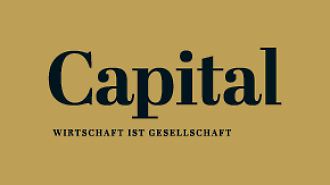The goal is high returns
Why financial investors fly at football clubs
By Jannik Tillar
08/06/2023 1:29 p.m
The super-rich have long afforded their own football club for reasons of prestige. The new financiers of indebted clubs are now private equity professionals. They don’t seek prestige, they seek profit. The bar is high. Economically, things are getting sporty.
The Corona period has changed football. Not necessarily sporty, but definitely economical. This is the conclusion reached by the analysis company Pitchbook, which looked at the investor relations of the top European clubs in a current study. The most important finding: private investors are becoming more and more important and are changing football in the background more than many think. Contrary to popular belief, the role of the super-rich, including those from oil-producing countries, continues to decline.
Corona has caused many old investors to rethink, according to the study, which is available to “Capital”. After the old sources of income had dried up in the meantime – through tickets, merchandising or catering – many old investors looked for new sources of money. They found what they were looking for in private equity (PE), for which football offered attractive framework conditions: Many clubs are heavily in debt, player salaries are insanely high and many managers are ex-professionals but have no business experience. Conversely, this would mean: If the clubs are positioned more professionally in these points, high returns could result.
The deal volume between 2018 and 2022 shows that many PEs believe in this calculation. While the takeover volume in 2018 was 66.7 million euros, in 2022 it was already 4.9 billion euros. This year it could be up to 10.6 billion euros if all the rumored takeovers actually come to an end. The biggest deal ever was Chelsea FC, which last year went from sanctioned oligarch Roman Abramovich to a consortium of several US PEs for €3 billion. With Manchester United, however, the next record takeover is already in the offing. The Glazer family, current owners of the traditional club, are currently negotiating with two potential investors: British billionaire Jim Ratcliffe and Qatari Sheikh Jassim bin Hamad Al Thani. Up to 5.5 billion euros are currently under discussion.
60 percent US share
The deal would go against the current trend on one point. According to the Pitchbook, the super-rich, who set up their own club for reasons of prestige, are on the decline. And those who would have had their own club for these reasons in the past are now appearing more professionally and are diversifying their portfolio – for example with a second club, an ice hockey team and a basketball team. This is what happened with Manchester City, which was once bought by Sheikh Mansour bin Zayed Al Nahyan from Abu Dhabi and later incorporated into the City Football Group. Twelve other clubs are now part of it, and with Silver Lake, an American venture capital company has also invested.
If these indirect holdings are also included, at least 35.7 per cent of all teams in the top five leagues (England, Spain, Italy, Germany and France) have sold all or part of their shares. The actual number is likely to be significantly higher because many ownership structures are not transparent. At almost 60 percent, investors come particularly often from the USA, where a hype about football has broken out in their own country in view of the 2026 World Cup.
Sports funds such as 777 Partners, which is also invested in the German second division club Hertha BSC, are particularly active in this regard. Otherwise Germany is relatively free of investors. In addition to Hertha, only FC Augsburg has another classic investor in the form of the US fund MSP Sports Capital. Bayern Munich has sold minority shares in Adidas, Allianz and Audi, VfB Stuttgart to Daimler. Borussia Dortmund is listed on the stock exchange and clubs like Leipzig, Wolfsburg, Leverkusen and Hoffenheim are or were in the past heavily dependent on individual sponsors. Compared to the other top 5 leagues, however, the two investors in Berlin and Augsburg are rather the exception – especially compared to England and France. There are at least ten comparable investors in England and at least seven in France. Only Spain, with three investors, is on a similar scale to Germany. There, takeovers are linked to the club’s five-year profitability, which makes deals difficult.
Healthy effect?
Meanwhile, the entry of private equity could also have a healthy effect, suggests Pitchbook. Because unlike the super-rich, who don’t care about the money, these investors want to multiply their stakes over a period of seven to ten years. This also means that the clubs are more professional and the squads are put together more efficiently. The best example of this is Newcastle United. After the new owners – the Saudi sovereign wealth fund together with PEs Capital Partners and Reuben Brothers – took over the club for 350 million euros in winter 2021, twelve players were signed, eleven sold and the management replaced. Expenditure of 130 million euros was offset by income of 52 million euros. But the new players, none of whom were real superstars, fitted in well at the club, initially avoiding relegation and qualifying the club for the Champions League the following year. This now ensures minimum income of 35 million euros in the current season.
Things could not have gone better for the new owners. Especially since they just paid a multiple of 1.7 on the sales at the time to take over the club. For comparison: Should Manchester United actually go to one of the two super-rich for 5.5 billion euros, that would be a multiple of 8.0 on sales. According to Pitchbook, it shows how much more irrational the super-rich are when it comes to takeovers. On average, PEs would only pay a multiple of 2.4 on sales and later get significantly more from the clubs. That is definitely not a disadvantage.
The article first appeared at Capital.de
